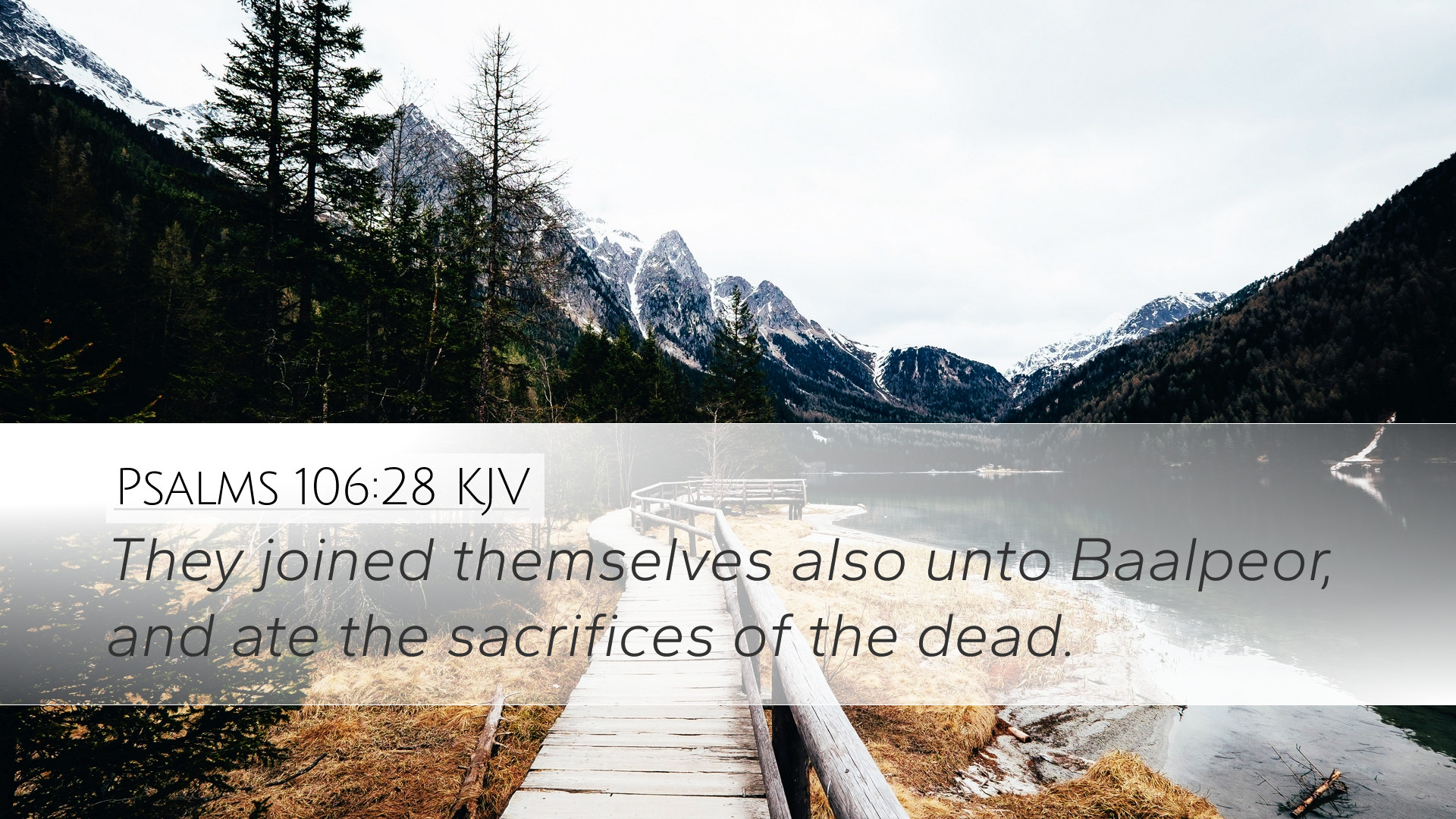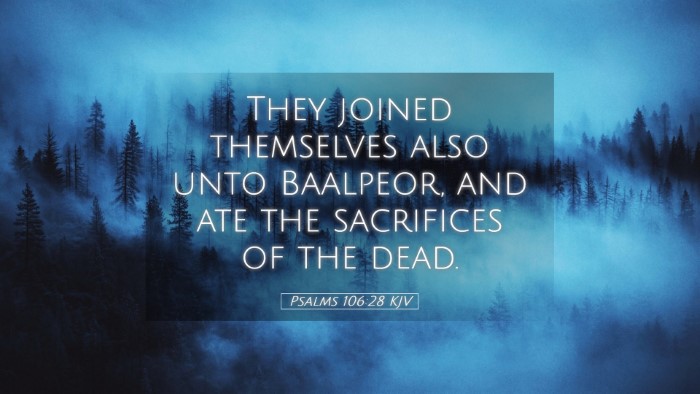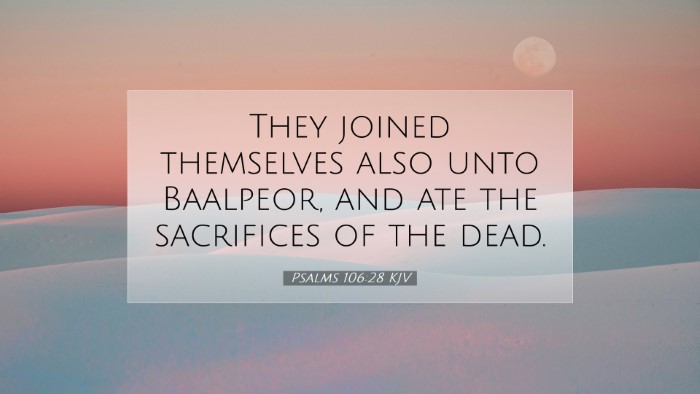Psalms 106:28 Commentary
Psalms 106:28 states, "They joined themselves also unto Baal-peor, and ate the sacrifices of the dead." This verse serves as a poignant reminder of Israel's failures and the continual temptations faced by the people of God. The conjunction of idolatry with participation in pagan feasts illustrates the serious consequences of turning away from the true worship of God.
Contextual Overview
The 106th Psalm is a historical psalm that recounts the failures of Israel, especially during their wilderness wanderings. It reflects on God's mighty acts of deliverance and the people's persistent ingratitude and rebellion. In this verse, the reference to Baal-peor marks a significant incident in Israel's history, linking the sin of idolatry with cultic practices that directly opposed the commandments of the Lord.
Commentary from Matthew Henry
Matthew Henry emphasizes the gravity of the Israelites' sin when they "joined themselves unto Baal-peor." He indicates that this act of devotion to an idol represents a serious betrayal of their covenant with God. The worship of Baal-peor, a Moabite god associated with fertility, often involved lewd practices that corrupted the moral and spiritual integrity of the people.
Henry adds that the mention of "eating the sacrifices of the dead" suggests a participation in necromancy and the darker aspects of pagan worship, where the Israelites sought communion with the dead rather than seeking the living God. This highlights the inclination of the human heart to turn toward false gods, often in times of trouble or dissatisfaction with divine providence.
Insights from Albert Barnes
Albert Barnes expands on the nature of Baal-peor, explaining how it epitomizes the corrupting influence of idolatry on the nation of Israel. He points out that the ritual activities associated with Baal-peor were likely linked to moral impurities, illustrating the broader concept of how idolatry leads to moral decay. Barnes notes that the act of "joining" signifies a committed relationship to such sinful practices, an alarming departure from their rightful relationship with Yahweh.
Additionally, Barnes highlights that their involvement in "the sacrifices of the dead" implies a rejection of the true sacrifices demanded by God and instead embracing sacrifices that were an abomination in His sight. This emphasizes the dire warning for all believers about the potential pitfalls of compromising faith and the severe spiritual consequences that accompany such actions.
Reflections from Adam Clarke
Adam Clarke analyzes the historical context surrounding Baal-peor's worship, noting that the term "Baal" itself means "lord," expressing the nature of idolatrous worship where the Israelites gave allegiance to a foreign god. Clarke elucidates that the association with "the sacrifices of the dead" relates to practices where offerings were made to deities of the afterlife, an affront to the living God who commands total allegiance.
Clarke further proposes a theological reflection where the actions of Israel must serve as a cautionary example for believers today. He asserts that the ultimate danger of idolatry lies not just in the act itself, but in the likelihood of seduction away from authentic faith and the sacrifices we are called to offer to God, which should be living and holy.
Theological Implications
Collectively, the insights from Henry, Barnes, and Clarke underline the critical warning against idolatry, particularly in how it manifests in the life of faith. Idolatry often creeps in subtly, and as this verse illustrates, can lead even the chosen people of God astray from their worship practices.
The act of "eating the sacrifices of the dead" serves as a metaphor for spiritual death—when faith is compromised, and the believer partakes in that which is lifeless or void of spiritual essence. This draws one away from true communion with God.
Application for Today's Believers
For pastors, students, and scholars, the lesson from Psalms 106:28 transcends its historical context. It serves as a relevant reminder to examine our lives for any potential idols that we may inadvertently worship. Whether it be materialism, cultural practices, or unethical behaviors, the dangers are pervasive in our modern context.
-
Reflection on Temptation: Consider areas where you may be tempted to stray from the principles of God due to societal pressures or personal cravings.
-
Commitment to True Worship: Reaffirm your dedication to the practice of worship that honors God alone, avoiding the allure of contemporary idols.
-
Spiritual Accountability: Seek accountability within your community to help resist and overcome idolatrous tendencies.
Conclusion
Psalms 106:28 serves as both a historical account and a timeless warning of the consequences of idolatry. With insights from biblical commentators, it provides a multifaceted examination of what it means to remain faithful to God amidst competing allegiances. The reflections on Baal-peor stand as an admonition to seek after true righteousness and wholly dedicate ourselves to the worship of the living God, who desires mercy, not sacrifice.


